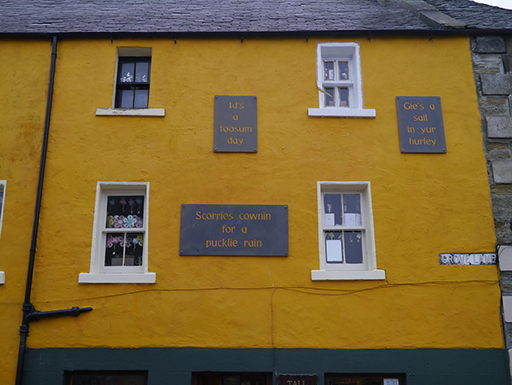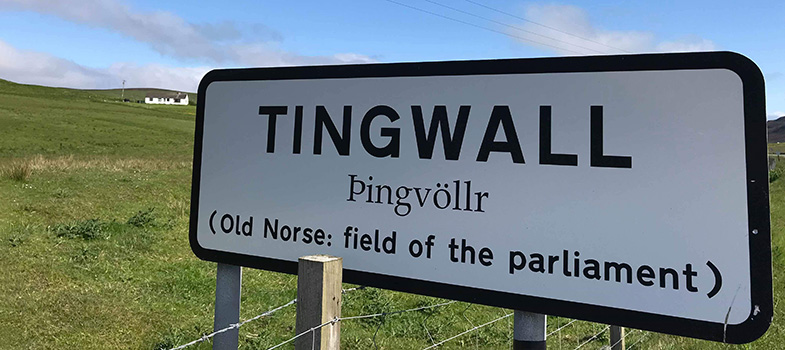4.4 Dialect diversity and bilingualism
Dialect diversity is important in understanding why almost no Scots speaker considers themselves to be bilingual – certainly not in the way a speaker of English and German, or English and French is classed as being bilingual.
Scots went for centuries as being a language which should only be used in the home, as a language of the streets, even considered by some to be nothing more than slang and simply bad English. Although this was – and often still is – a common perception, the language continued to be spoken, and in certain regions, was spoken a great deal. Within the regions, speakers were – and, again, often still are – in the habit of labelling the language as “their” local dialect.
Attitudes towards the language, even amongst many of its champions, rarely sought to unite the regions, instead preferred to maintain within its quarters and boundaries. Modern day Scotland is not a place where being a speaker of English and a speaker of a local dialect offers individuals the tag of being bilingual.
The child who grows up with a Scottish father and a Norwegian mother - learning English and Norwegian from birth - is viewed as bilingual and different from the child who grows up speaking both English and Scots, regardless of whether they learned their Scots from one of their parents, from the community, or whether they learned their English at home or at school.
An interesting linguistic example, common across Scotland today, is the child who was born in Scotland after their parents emigrated from Poland. This child often grows up learning Scots in the community, along with learning Polish at home and English at nursery and school. The value of each of these three languages changes in different social situations, and each language has a value, but the child is rarely viewed as being trilingual. Instead only their aptitude for English and Polish is valued and/or acknowledged within Scotland.

Activity 9
In this activity you will further explore the concept that speakers of a Scots dialect as well as English (or another language) should be considered bilingual.
Part 2
In this part of the activity you will take a closer look at the links between speaking a dialect and being bilingual. Read the text Scots dialects 'as good as a second language'.
After reading it, decide whether the statements below are True or False according to the BBC News text by Ken Macdonald.
a.
True
b.
False
The correct answer is a.
a.
True
b.
False
The correct answer is a.
a.
True
b.
False
The correct answer is b.
b.
The correct answer is false. It takes longer to switch back into the dominant language.
a.
True
b.
False
The correct answer is b.
a.
True
b.
False
The correct answer is a.
a.
True
b.
False
The correct answer is a.
4.3 A brief history of the Shetland dialect
